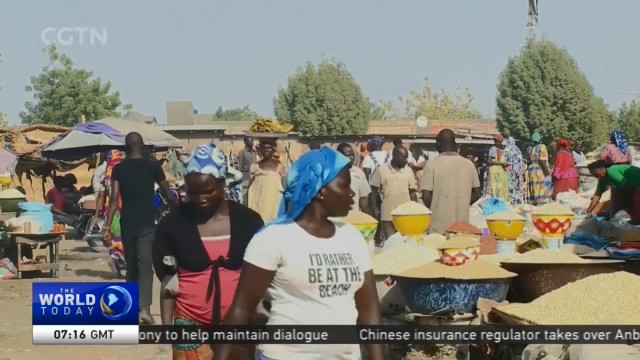
16:02, 23-Feb-2018
Chad Financial Crisis: Government vows no more pay cuts under austerity drive

Chad's economy has slumped since global oil prices fell in 2015, reducing its main source of income. This led to a government austerity drive. This year, the finance minister promised no further cuts on civil servants' pay, after strikes and protests erupted over the measures. But the cuts have increased social tension, and anger towards President Idriss Deby, who has been in power since 1990.
Every morning, Diane goes shopping at the market. But for several months she's been coming back with less. That's because her salary as a midwife has fallen. In the last two years, she's seen it cut by a third.
DIANE NELL MALL KOIDERE MIDWIFE "We don't eat three times a day like before. We only eat once. In the morning we drink tea. Tea on its own with four fritters. It's not like before when the children had milk, chocolate milk, bread. There isn't any and it's not easy to make ends meet."
Inflation makes Diane's pay cut worse. The price of some products at the market has doubled.
HISSEIN ABDOULAYE ADRAM SHOPKEEPER "Things are becoming more and more expensive at the market because they tax goods a lot when they get to customs. Taxes go up every year, which puts up prices at the market."
Since the end of last month, there's been widespread discontent across Chad. A general strike against government belt-tightening crippled the public sector. Hospitals and schools ground to a halt. Diane's husband says it showed the strength of feeling across the country.
FRANCOIS DJEKOMBE RADIO STATION DIRECTOR "In a country where the justice system is paralysed, the health sector is paralysed, the education sector is paralysed. I think nothing's working in this country."
Chad gets 70 percent of its revenue from oil sales. But since global oil prices fell in 2015, its economy has slumped. And there seems to be no let up in sight. With public sector salaries eating up 80 percent of the state's budget, the government's borrowed nearly two billion euros from banks just to keep paying their wages.

SITEMAP
Copyright © 2018 CGTN. Beijing ICP prepared NO.16065310-3
Copyright © 2018 CGTN. Beijing ICP prepared NO.16065310-3